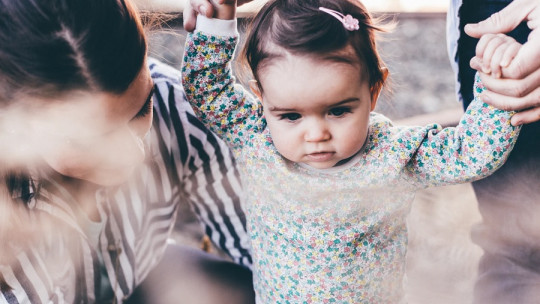
Let’s imagine the following situation: the key fits inside the lock, the door opens and the children slam their backpacks on the floor after a long day of school. However, the youngest is quieter than usual, appears a little crestfallen and locks himself in his room as soon as he arrives home. During dinner, he drags the food from one side of the plate to the other and remains silent. Although our individual abilities may differ in this regard, people are experts at recognizing emotional states in others, so it is obvious to their parents that something is wrong with the child. However, instead of initiating a space for dialogue, one of the parents could reprimand him for his behavior; the other, telling him to leave him alone, that he’ll get over it.
As we can see, although the parents are most likely acting in the way they consider most appropriate to raise their children (since it is worth remembering that no one is born knowing how to be a parent), this scene clearly illustrates a communication problem in family mediation, not only of the parents with respect to the child, but also between themselves. For this reason, in this article we will delve into the crucial role of communication in family mediation
Communication in the family
Within the family—as occurs in human bonds in general—we need interaction with others. This statement appears to be obvious. However, have we ever thought about the difficulties we would have to face if we could not carry out actions as minor as making suggestions or asking for help? In fact, it is something we do so often that we are not even aware of it. Communication via language in its various forms—whether physical, oral or written—is a great advantage that human beings have to adapt to the challenges of the environment.
For its part, communication in the family environment specifically adopts certain different qualities compared to communication in other vital areas. Firstly, the members of a family share a physical and temporal space once the particular activities that each one does on their own are finished, whether they are going to school, working or practicing a hobby. And, even though the times destined to be together are brief, it is crucial in those moments of encounter that the members of the family can share their experiences, challenges, joys and concerns of everyday life to accompany each other.
In addition, Life in the same space can entail a series of conflicts or contradictions between the different members that need to be put on the table (and never better said). A clear example is conflicts linked to the fulfillment of household chores or related to respect for certain privacy spaces even when they are gathered under the same roof. This not only applies to parents with respect to their children but also to each other, since we remember that mediation between both is important as they not only fulfill the role of caregivers of their children, but also share a life project susceptible to changes and discussions.
Taking into account the relevance of communication within the family, it is evident that, if one or more members have difficulties expressing their own interests and needs assertively, with precision and clarity, it is likely that various problems will emerge in the family. individuals as a result, whether the dialogue is poor or conflictive in parent-child relationships or between siblings.
The family is decisive in the development of children, since it is the core where the person is introduced into society and the reality in which they live – and, therefore, the rules or norms that they must abide by to adapt to it -, but it is also the framework in which they gradually acquire skills to gain autonomy and differentiate themselves from their parents during adolescence. The agents who promote the acquisition of these skills are usually the parents, although it can also be another person very present in the child’s life. Therefore, good communication between both parties is of utmost importance to make this possible.
Family communication as a risk and protection factor
The range of research regarding the role of communication in family mediation is wide. These tend to come to the conclusion that poor communication between parents and children could be a risk factor for the child or adolescent, increasing the chances that they will act in a way that compromises their ties, well-being and general health. It has been proven that there is a relationship between inefficient mediation and a greater probability of dropping out of school and drug abuse, alcohol and tobacco consumption. Besides, Poor communication in the family is related to greater difficulties when bonding with friends as well as with greater physical and psychological discomfort with respect to those who maintain assertive communication with their parents.
In contrast to this, it has been found that good communication in parent-child ties implies a protective factor for adolescents. In families in which this type of communication prevails, adolescents perceive the unconditional support of their parents, as well as the sense of family unity in difficult situations. This would be beneficial beyond the family environment, since adolescents who belong to homes in which better communication and greater satisfaction in intra-family ties prevail are those who perceive more support from significant others.
In other words, Assertive communication within the family would influence the development of subsequent capacities to perceive greater emotional availability in others and, consequently, increase their abilities to ask for help, which is a skill to cultivate to take care of one’s own mental health.








